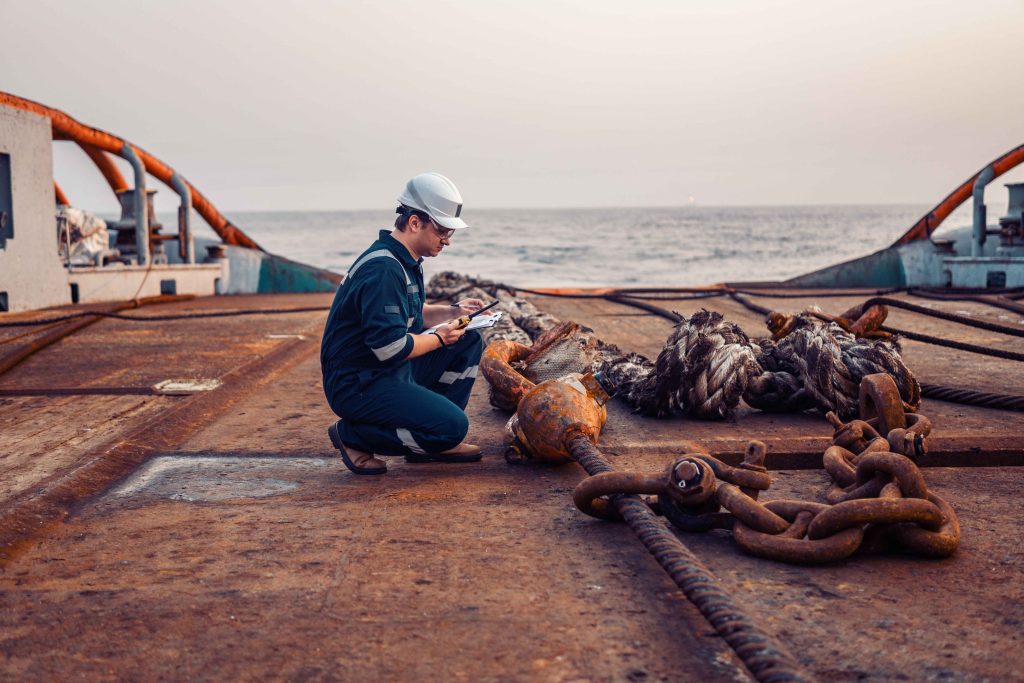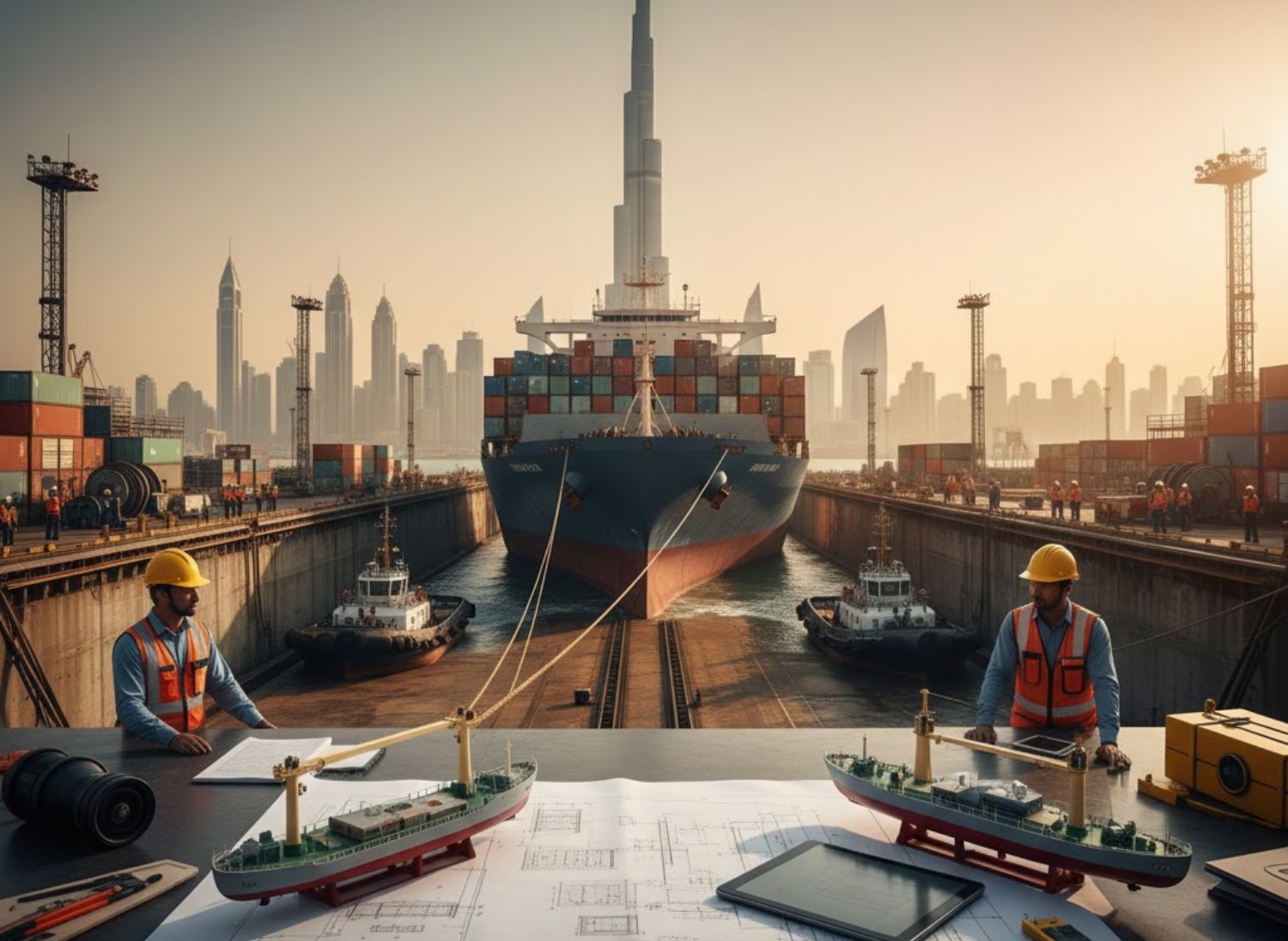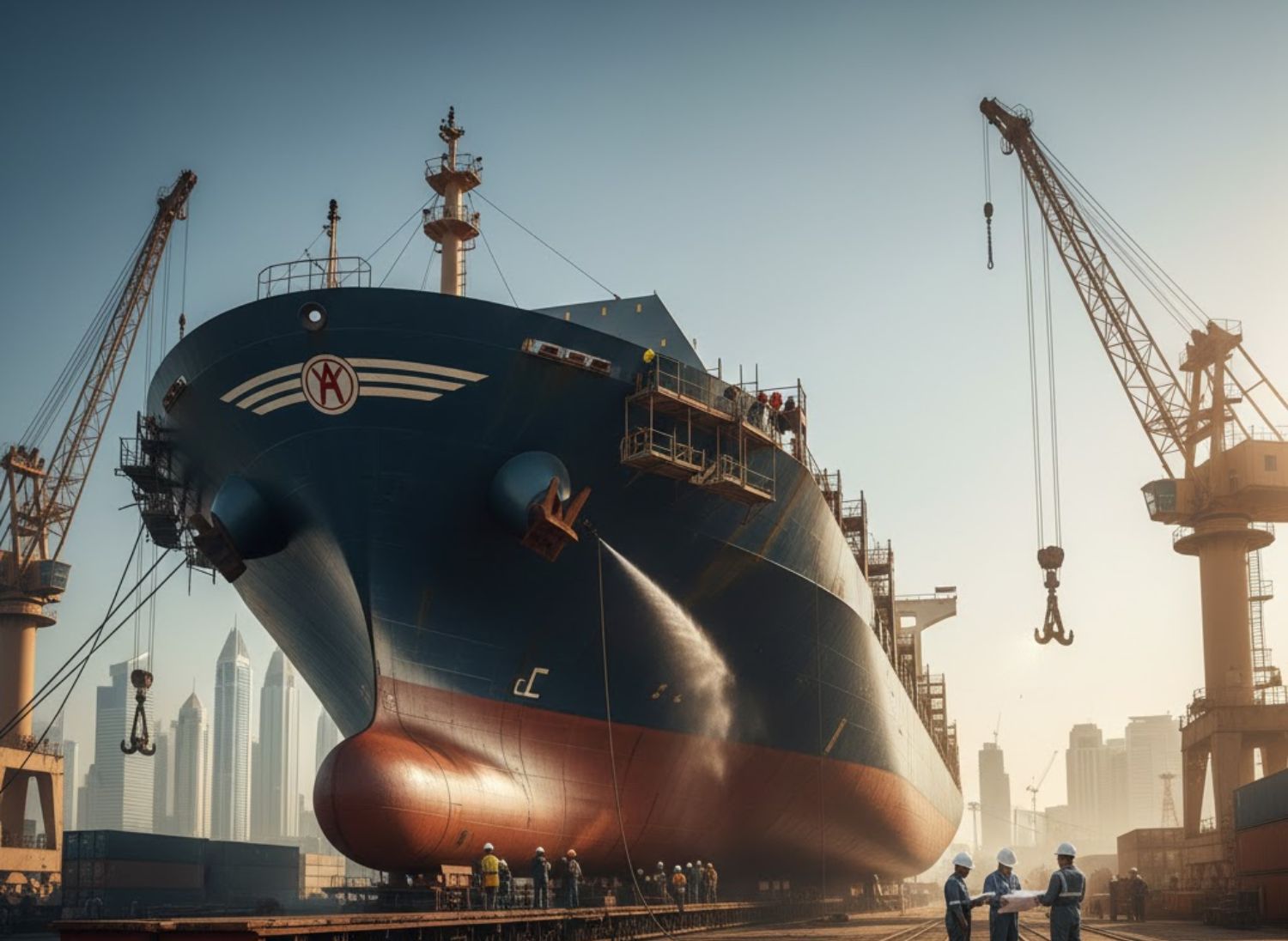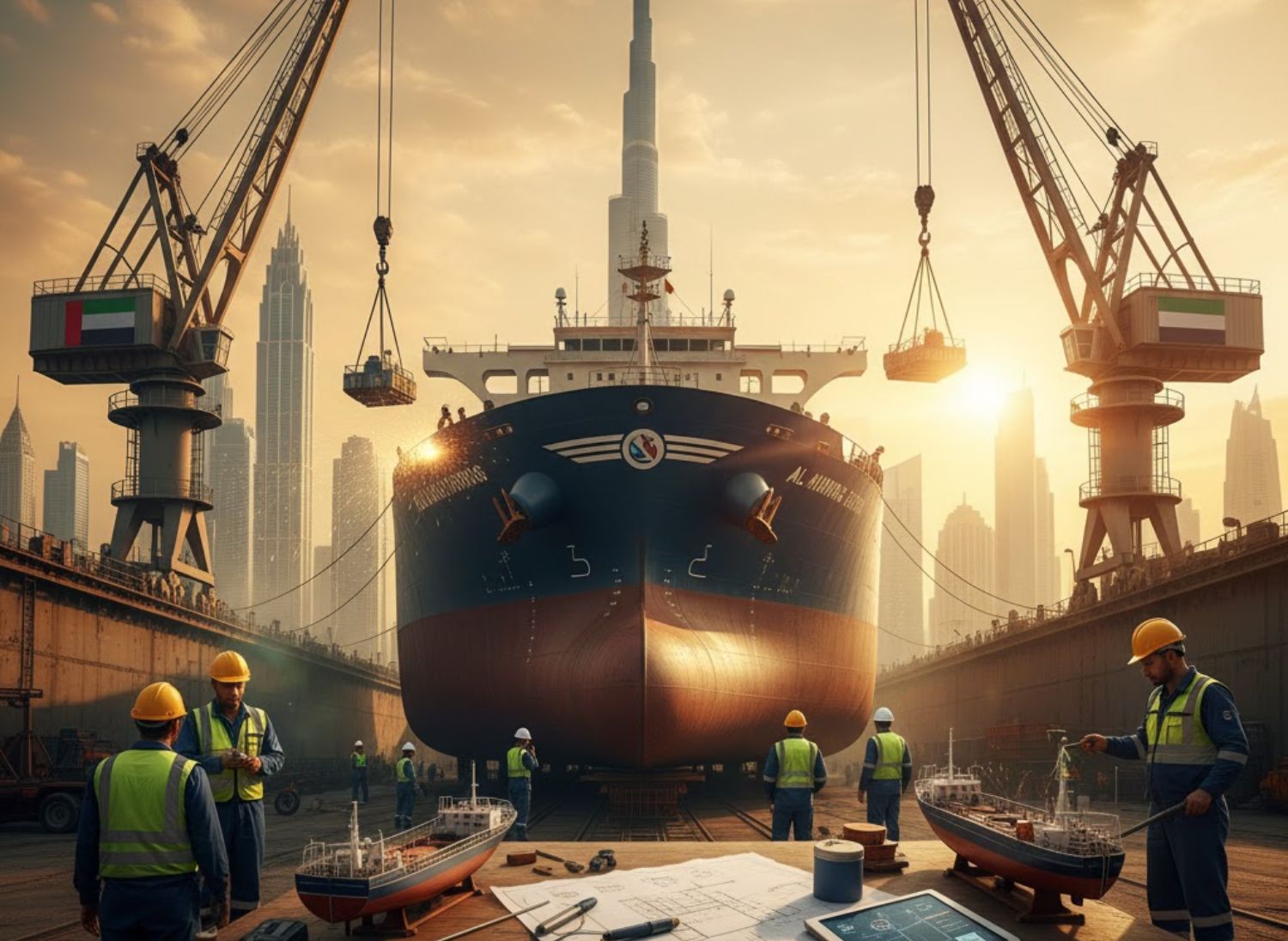Vessel Docking in Dubai: Mastering Marine Engineering Excellence in the World’s Busiest Maritime Hub
Introduction Picture this scenario: A fully loaded container vessel approaches...

In the shipping industry, regulations aren’t suggestions; they’re the foundation of safe and legal practice. From international legislation to port-specific demands, ship management regulations must stay ahead of a tangled network of compliance. From SOLAS to flag state legislation, it’s the grasp of these frameworks that keeps vessels moving, stays out of hot water, and keeps people safe at sea. In this article, we dissect the most critical maritime regulations and provide practical advice to assist operators in remaining compliant in international waters.
Table of Contents
ToggleShip management regulations are under the microscope. Maritime compliance goes beyond just filling out forms; it’s really about ensuring the safety of the crew, safeguarding our environment, and keeping ships operating smoothly without any hiccups. If even one regulation is overlooked, it could result in detentions, the loss of operating permits, or, even more seriously, environmental disasters and tragic loss of life.

Ship management regulations must adhere to a framework guided by key regulatory authorities:
Each body enforces specific sets of standards ranging from environmental protection to seafarer welfare, all of which feed into a broader ecosystem of international maritime laws.
Established back in 1914, SOLAS is still a fundamental safety element in the shipping industry. They regulate:
SOLAS compliance is mandatory for all commercial vessels.
The ISM Code ensures that safety management and pollution prevention are standardised across all vessels. It includes:
All ship management regulations require maintaining an up-to-date ISM certification.
The MLC 2006 sets minimum working and living standards for seafarers:
Sometimes referred to as the “Seafarers’ Bill of Rights,” this regulation affects crew recruitment and HR compliance

MARPOL governs the prevention of marine pollution from ships:
MARPOL compliance is increasingly critical as environmental scrutiny rises globally.
Shipowners and managers must maintain:
Missing or expired certifications can result in vessel detention or denial of port access.
Arcship doesn’t just meet standards; it sets benchmarks. With a 700+ strong team and global operations centered in Dubai, Arcship:
Compliance is the foundation of professional ship management regulations. As international maritime laws evolve, companies that don’t stay ahead will fall behind or face serious legal and financial consequences. Understanding the pillars of ship management regulations, from SOLAS to MLC, is not only a requirement; it’s a strategic advantage.
Arcship empowers shipowners to navigate global compliance with confidence, from audits to certifications to daily operations. In this high-stakes industry, that peace of mind is everything.
What is the most important regulation in ship management regulations?
While all are critical, SOLAS regulations are often considered the most vital due to their comprehensive safety coverage.
How often do ships need to renew their certifications?
Ships must renew most international certifications every two years. They also need to go through checks every 2.5 years.
In Dubai, which entities enforce maritime rules?
The DMCA is the primary regulatory body that sees to it that all ship operations in the UAE are in compliance..
Does Arcship have a solution for certified managed vessels?
Yes, we have full cycle certification support at Arcship from pre-audit checks to document management and renewals.
What do you notice between ISM and MLC?
ISM is a safety and pollution prevention body, which, as opposed to MLC which looks at the crew’s working conditions, welfare, and rights.

Head Office : SHED #182B AL JADDAF DRYDOCK WORLD, P.O BOX -65565, DUBAI, UAE
Tel: +971 555787949
Email: info@arcship.ae
© ARCSHIP MANAGEMENT. All rights reserved.


